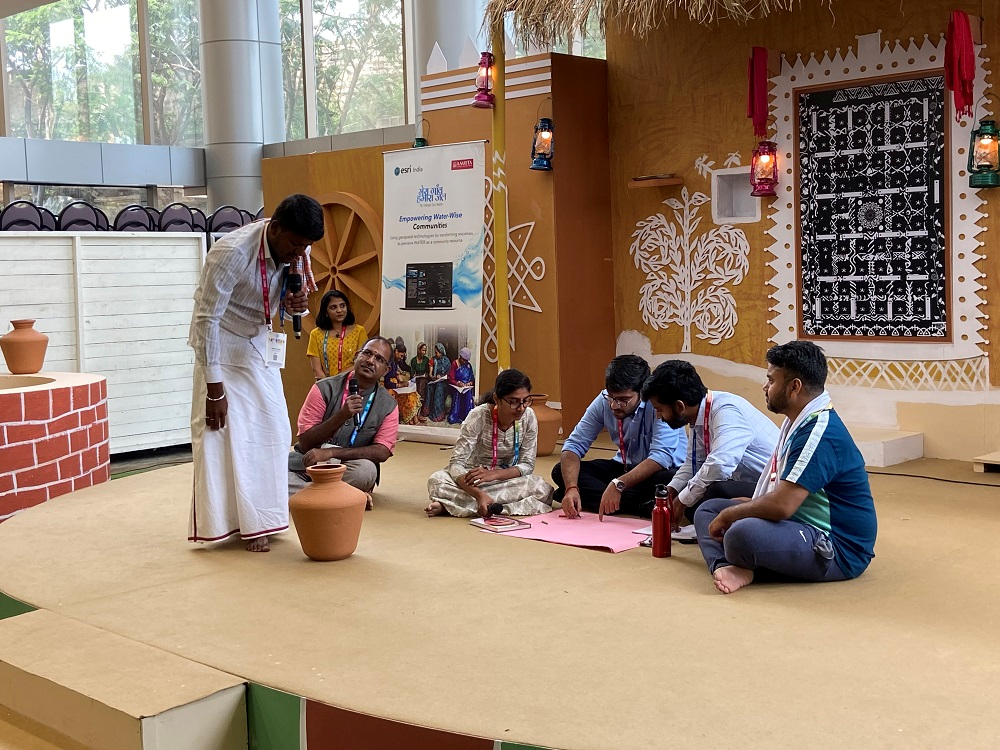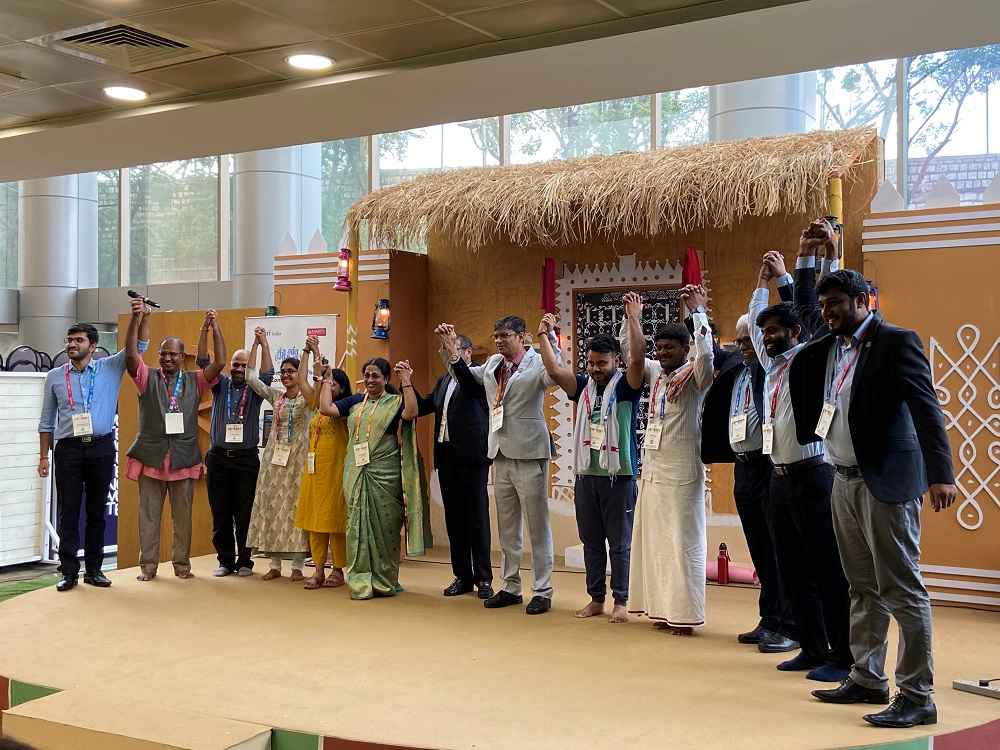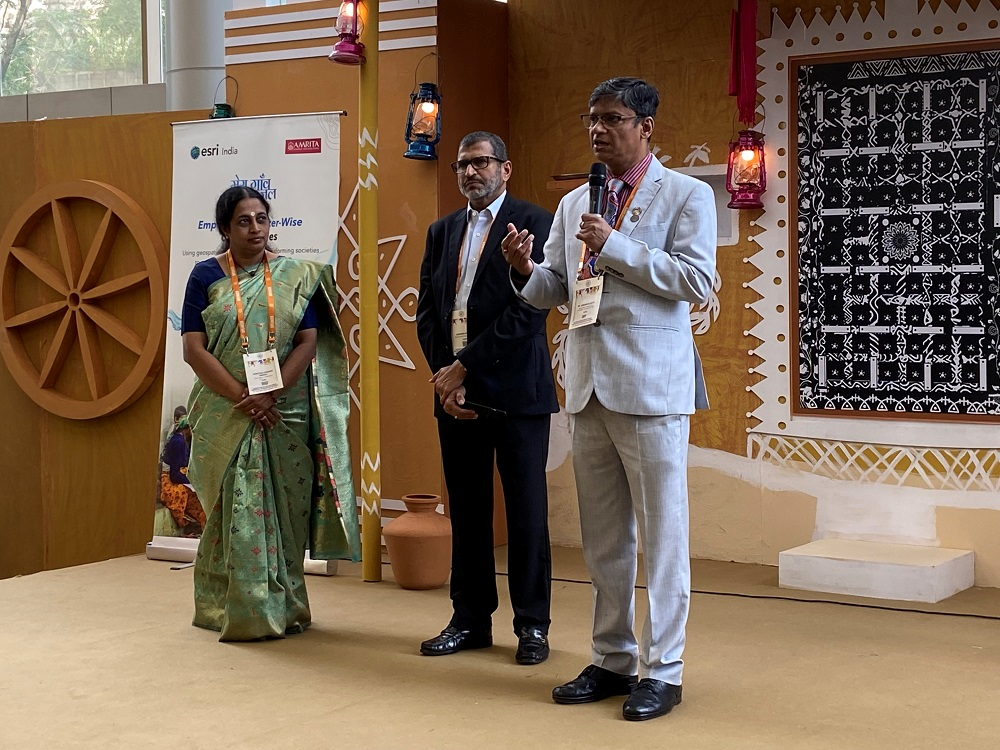Rampur a village in Karnataka with housing 500 families which earlier suffered from no source of drinking water, now has access to clean drinking water, thanks to a community app that helped people in the village report their problems and seek solutions for them.
The Empower Community App which was developed by Amrita Vishwa Vidyapeetham, a private education institution in collaboration of Esri India, a private geospatial company has enabled the villagers to upload their water as well as other problems with all details and also the geo location with the help of GPS.
“Our entire village have benefitted greatly. The Living App department of the university visited out village and implemented a system for access to drinking water. Now we don’t have drinking water problem,” said Srinivas Naidu, a community member from Karnataka and a beneficiary of the Empower Community App.

This was possible through the Mera Gaav, Hamara Jal (“My Village, Our Water”) initiative jointly launched by Amrita Vishwa Vidyapeetham’s UNESCO Chair on Experiential learning and ESRI, which brought about a transformational change by altering the perception of society to help them view water as a community resource rather than as a personal resource.
Through this initiative, communities are trained and empowered to map and monitor the water resources, map water quality as well as practices prevalent in the community and livelihood activities.
“This is an example how private sector can work with knowledge sector to empower the community,” said Dr Debapriya Dutta, Advisor & Head, SEED, SSTP Division, Department of Science and Technology, Government of India. “It demonstrated how the geospatial technology can enable the community to address the water availability, accessibility and reduce the uncertainty to improve resilience. By empowering community members, water-wise communities will proliferate and help achieve community-scale implementation of UN SDG 6 targets,” he added.

“This is part of the Community COVID Resilience Resource Centers (CCRRC) of the the Department of Science and Technology (DST) under Society for Equity, Empowerment and Development (SEED) programme established to address the challenges of resilience,” Dr Dutta pointed out.
Maneesha V Ramesh, Provost of Strategic Initiatives, Research, and Innovation, Dean Amrita School for Sustainable Development informed that they have been working on building a crowd sourced mobile application to empower the community to identify their challenges and reach out effectively to those who could help them. “We review their information and plan interventions like community engagement and empower applications.
“A multidisciplinary team of students work together with community in participatory mode to design the solutions and then deploy in them such a manner that community can operate and sustain it,” she added.

Extensive crowd-sourced data is harnessed to derive water sustainability challenges in communities quantitatively and qualitatively. The data collected through Amrita’s “Empower Community App” is ingested into ESRI’s ArcGIS platform. This has increased ease and accessibility to water-related information at the household level while at the same time facilitating assessment of climatic changes and anthropogenic activities from community’s perspective for devising interventions and policies for sustainable water resource management.
Mera Gaav, Hamaara Jal, augments Amrita’s Department of Science and Technology funded Community COVID Resilience Resource Centers (CCRRC) currently implemented across 14 communities in selected states in India. These 14 communities act as the HUB which connects to 200 spokes with the aim to strengthen Science Technology and Innovation (STI) based resilience capacities of communities for improved resilience and livelihood systems on the themes of education, water, skill base, agriculture, and health.






























